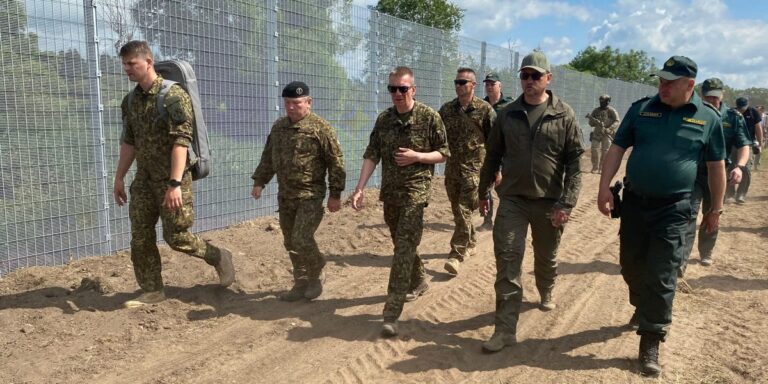NATO members Latvia, Lithuania, Estonia and Poland have asked the EU to build defense infrastructure along their 700-mile border with Russia and Belarus, according to Reuters.
Leaders of four countries that share a border with Russia or Belarus called for “extraordinary” measures to protect themselves and their allies.
“The creation of a defense infrastructure system along the EU’s external borders with Russia and Belarus would address the desperate and urgent need to protect the EU from military and hybrid threats,” they said in a joint letter to the EU presidency, according to Reuters.
They said the plan should be discussed at a two-day summit in Brussels starting June 27, where EU leaders are due to discuss issues such as defence budgets.
According to Reuters, the letter said that the scale and cost of the effort – which some EU diplomats estimate at around $2.7 billion – required EU-wide action to support it both politically and financially.
It did not specify what military or civilian means should be deployed.
NATO frontline nations face a growing threat from Russian hybrid warfare, a type of non-traditional Russian tactics that blur the line between war and peace and fall into the so-called “gray zone.”
In one recent example, the Russian Coast Guard removed buoys on the Narva River in May that separated Russian and Estonian territorial waters, the day after Russia leaked a proposal outlining plans to rezone its territorial waters with Estonia, Lithuania and Finland.
There has also been an increase in jamming of satellite navigation systems of civilian aircraft in the Baltic Sea region, believed to be coming from Russia.
Meanwhile, EU officials have accused Russia and Belarus of pushing migrants towards the borders of neighbouring Poland and Lithuania.
Influence operations have also targeted all three Baltic states, with Estonia seeing an increase in acts of sabotage in October damaging an undersea gas pipeline and communications cables connecting the country to Finland.
In response to these threats, and to the possibility of Russian aggression, NATO and European countries close to Ukraine and Russia have begun developing their own defense plans to protect their borders.


